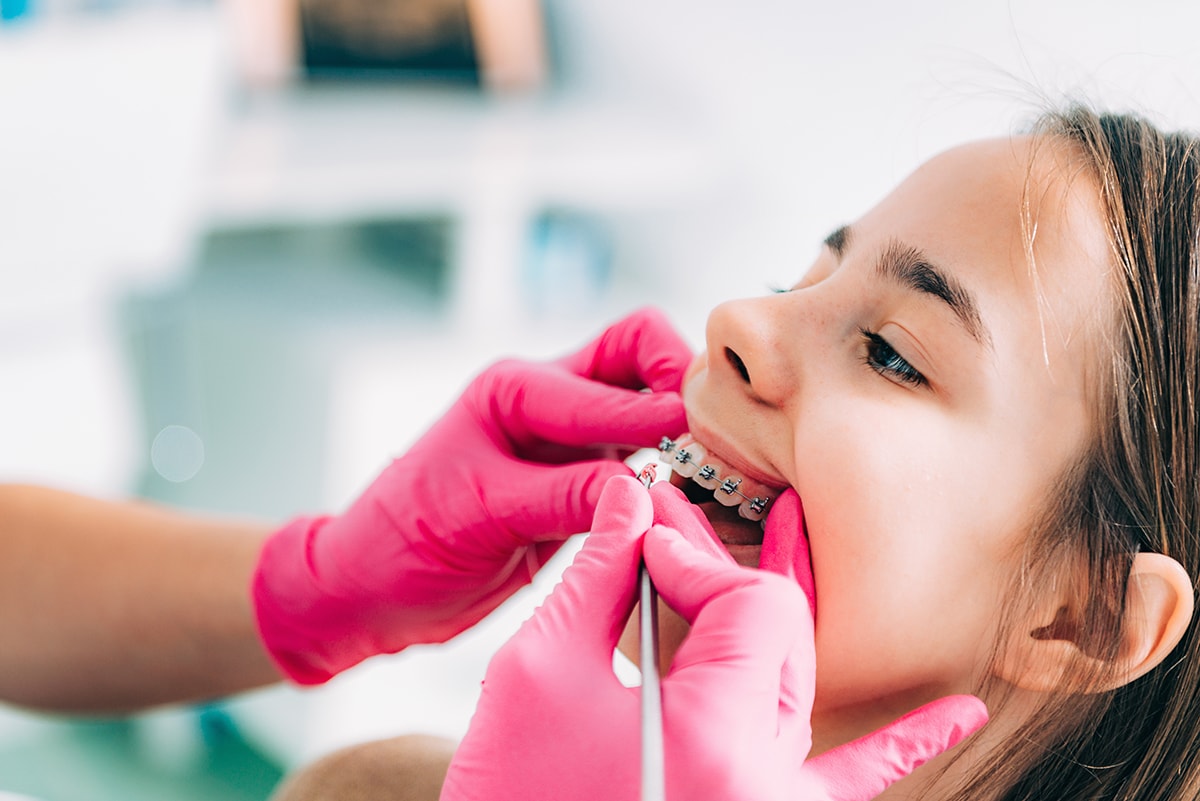It’s common for parents to think orthodontic care begins in the teenage years—but leading dental experts, including the American Association of Orthodontists (AAO), advise that children receive their first orthodontic screening by age 7. This isn’t about rushing to get braces, but about setting the foundation for a healthier smile and simpler, more effective treatment in the future.
Why Age 7 Is the Ideal Time
By age 7, most kids have a mix of baby and permanent teeth—a critical period that allows an orthodontist to assess how the jaw and permanent teeth are developing. During this evaluation, potential challenges such as crowding, crossbites, or jaw misalignment can be identified early, offering a chance for timely intervention.
Early evaluation doesn’t always lead to treatment. In many cases, it simply provides valuable insight on whether to monitor your child’s development or act sooner to guide it proactively.
Top Benefits of Early Orthodontic Screening
1. Guide Jaw Growth and Tooth Eruption
Interceptive treatment—used during jaw development—can support natural growth. For instance, a palatal expander can create space for adult teeth in a narrow upper jaw, helping avoid extractions or more invasive treatment in the future.
2. Prevent Dental Trauma
Children with prominent front teeth—known as overjet—are at a higher risk of injuries to these teeth. A Cochrane review shows early treatment significantly lowers the likelihood of such trauma versus waiting until adolescence.
3. Lower Long-Term Treatment Complexity and Cost
Catching issues early often means less extensive and shorter treatments later on. Untreated problems can require more involved plans like braces, extractions, or surgery—solutions that early care can help avoid.
4. Support Oral Function and Overall Health
Misalignments can affect chewing, speech, and even breathing. Early intervention may prevent complications such as gum issues, jaw pain, or TMD.
5. Build Confidence and Well-Being
Early correction of noticeable dental issues can support your child’s self-esteem. Addressing concerns before school years can reduce stress and enhance social confidence.
What Typically Happens During the First Visit
Early orthodontic screenings are gentle, informative, and designed to ease parents into long-term care planning. Here’s what you can expect:
- Visual evaluation of the teeth, bite, and jaw alignment
- Digital imaging or X-rays, if needed, to assess structure and growth
- Discussion of habits like thumb-sucking or tongue thrusting
- Customized recommendations—ranging from monitoring growth to planning for early interventions
Many children don’t begin treatment immediately; instead, orthodontists will determine the best timing based on a unique plan tailored to your child’s needs.
Pros and Cons to Keep in Mind
Pros:
- Reduces the need for more invasive or extensive treatment in adolescence
- Guides jaw growth for optimal alignment
- Helps intercept harmful habits early
- Enhances functional development like chewing and speech
- Potentially lowers overall treatment costs by simplifying procedures
- Boosts long-term confidence and well-being
Cons:
- Not every child requires early intervention; some issues resolve naturally
- Early treatment may be followed by a second phase during adolescence—meaning multiple steps
But even when issues don’t require treatment, the early screening provides valuable guidance and reassurance for future decision-making.
Summary: Why This Matters for Parents
Early orthodontic screening is about prevention, not pushing braces on a child prematurely. It empowers families to:
- Monitor development wisely and proactively
- Avoid more costly and intensive treatments later
- Guide a growing smile efficiently
- Support better oral health, function, and confidence for years to come
Ready to plan your child’s smile journey?
If you’re in Pearland, Spring, or League City, schedule a free consultation at AvA Orthodontics. We’ll help determine if your child needs early guidance or simply monitoring for a healthy, confident smile ahead.

